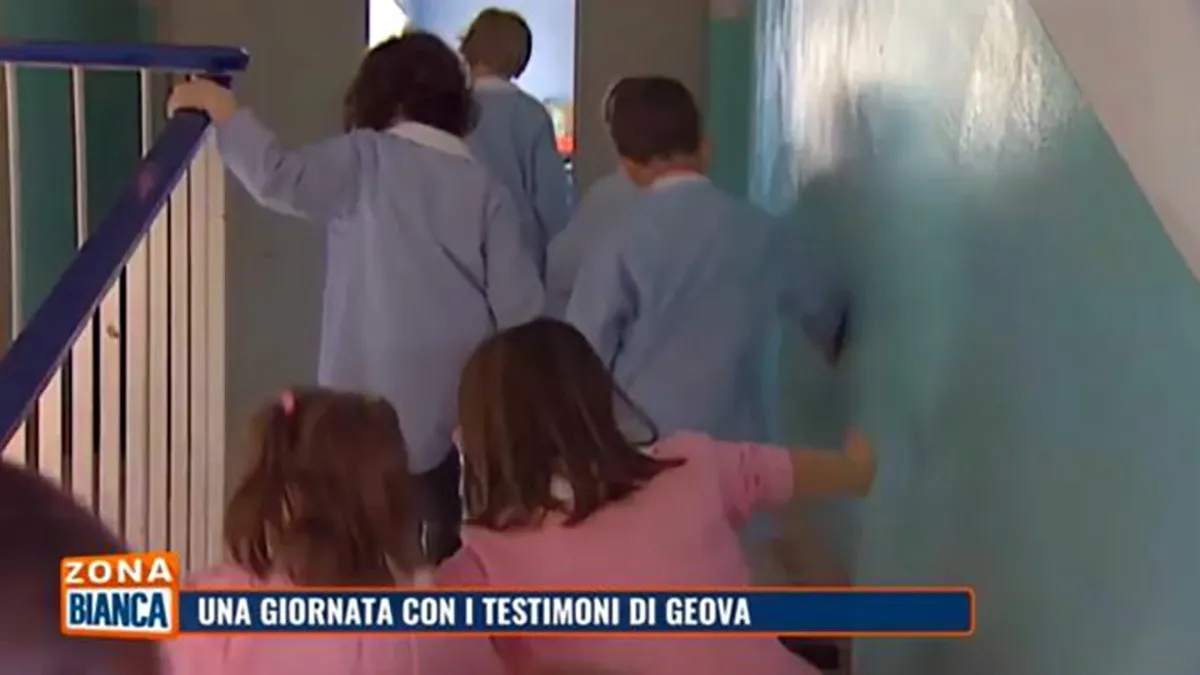
A TV show offers a perfect example of how “not” to deal with the issue of religious minorities.
In this month of February, the Italian TV show “Zona Bianca” (“White Zone”) aired episodes devoted to Jehovah’s Witnesses that represent, in our opinion, a textbook example of how TV journalism should “not” deal with the very sensitive topic of religious minorities.
The broadcasts gave voice exclusively to militant critics and “apostates.” The latter word is not an insult but a technical term used in sociology to define those who are part of that minority of ex-members who become militant critics of the religion they have abandoned. The vast majority of ex-members of all religions are not “apostates.” Precisely with regard to the accusations of manipulation of adults and minors made by the broadcast, the media should consider that apostates are not representative of the larger universe of members and ex-members of new religious movements. The apostates constitute a minority, nor are they by definition the only and most reliable witnesses of how life within the new religious movements unfolds. Yes, they have been part of them, but the same can be said of the many members or former members who have not become apostates.
Apostates often became such because they underwent a process of socialization within the anti-cult community and ideology and because of the activism they demonstrate in fighting the movements they left behind. These factors are in themselves obviously relevant in terms of bias and prejudice. To accept that the version told by apostates about a new religious movement is “the truth” would be like judging the moral status of a divorced person based only on the testimony of an angry ex-spouse, or basing one’s understanding of the Catholic Church solely on the testimony of former priests who have reasons to resent it

A frame of the broadcast
It is true that two scholars of Jehovah’s Witnesses who are signatories to this document were invited to the broadcast, first Massimo Introvigne, but he was in India, then noting his unavailability Raffaella Di Marzio, who declined because of the obvious disproportion between critical and pro-Jehovah’s Witnesses or at least neutral voices. These latter voices thus turned out to be entirely absent. Unbelievably, Jehovah’s Witnesses themselves were not even consulted for the first installment, while for the second their offer to answer written questions was completely ignored and the correction they sent to the editorial staff regarding the first installment was only briefly paraphrased.
Rather than a “White Zone” we thus witnessed a “free zone” where anything went by as long as it incited discrimination and aversion against Jehovah’s Witnesses. The broadcast fell into an old vice of so-called “anti-cult” reportage, a view that relies almost exclusively on generalizations and stereotypes, and which, for example, ignores the temporal evolution of religious organizations, particularly in the case of the Jehovah’s Witnesses recent changes in the treatment of former members separated from the organization or “apostates,” or of vigilance to protect minors who are possible victims of sexual abuse, which even experts from different nations have compared favorably to the practices of other religious organizations. Another distorting effect is to present individual cases of abuse, unfortunately present in any religious organization, as if they were representative of the daily life of Jehovah’s Witnesses, which is certainly false.
It seemed to us that some speakers were completely unaware of these developments, as well as of international and Italian jurisprudence, including recent decisions (see Cassazione, no. 9561, April 13, 2017), that considered the so-called “ostracism” (a term that Jehovah’s Witnesses, moreover, do not use), even as it was practiced before the recent changes, as a practice that does not violate any criminal or civil law. It was also ignored that case law has resolved with common-sense principles, also recognizing that the parents in question maintained a reasonable and responsible attitude (see Tribunale dei Minori di Genova, no. 1109/19, May 6, 2019; Tribunale dei Minori di Milano, no. 1110/2014, Jan. 15, 2014), the rare cases related to blood transfusion prescribed to minor children of Jehovah’s Witnesses (as for adults, they obviously have the right to refuse medical treatment contrary to their beliefs, including blood transfusion, as recently reaffirmed by the European Court of Human Rights in the “Pindo Mulla” judgment of September 17, 2024).
Religious minorities are often victims of hatred, violence and discrimination. Journalism, especially television journalism, which creates “free zones” for discriminatory narratives has a grave responsibility when it fuels these obnoxious phenomena.
February 15, 2025
Alessandro Amicarelli – President, European Federation for Freedom of Belief (FOB)
Luigi Berzano – University of Turin; President, Observatory of Religious Pluralism
Francesco Curto – President, Fedinsieme
Raffaella Di Marzio – Director, Center for Studies on Freedom of Religion Belief and Conscience (LIREC)
Massimo Introvigne – Director, Center for Studies on New Religions (CESNUR)
Letter also published in Bitter Winter, same date.





